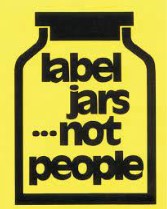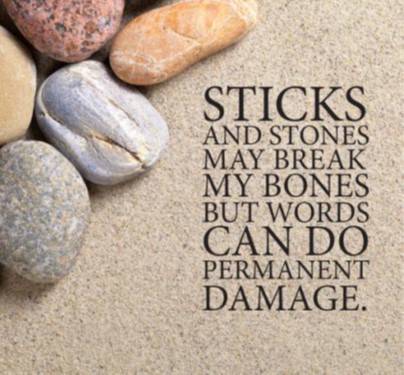Mrs. Alexandra Kpikpi
Children need to feel loved and secure before they can thrive physically, emotionally, spiritually and educationally.

It can be helpful to think of each child as having an emotional tank (just as a car has a fuel tank). If their emotional tank is full, they can take on the day with all its demands and cope with everyday challenges well. If their tank is empty though, they are like a car without fuel. They quickly stop functioning well. A child who is constantly running on a low emotional tank will show deficits physically, emotionally, spiritually or educationally – or maybe in more than one way.
The positive things we can do to show our children how much we love them (which we discussed last week) are all things that will keep our child’s emotional tank topped up.
Some things that we may do as parents, however, drain our children’s tanks and – worse – undermine their faith in our love for them.
Sometimes we do these negative things because they were done to us by our parents . We didn’t like it when our parents did these things, but yet we end up doing the same things with our own children. Let’s examine ourselves, think about our history, and break the cycle. We may have to ask for God’s help to break free of some of these behaviours.

We abandon our children when we move away from the family home to live in another place or ‘post’ the children to live with relatives. This sends a message to our children that other things are more important to us than they are. Remember the question a child is always unconsciously asking is “Do you love me?”. How will a child who has been left by his or her parents answer this question?
God gave your child to YOU. He wanted YOU to raise them. If He had wanted your relatives to be their parents, then He would have made your relatives give birth to your children, rather than you.
Sometimes we lie to children because we want them to stop behaving in a particular way. We might say to a child who keeps hitting his brother, “If you don’t stop doing that, I’ll call the policeman” or we might say to a child who is crying on the first day of school, “Stop
crying and I’ll buy you an ice cream” when we have no intention of doing either. It is never a good thing to lie to our children. When we don’t follow through with what we said we would do, children learn that we cannot be trusted. And this makes them insecure. Why should they believe anything we tell them the next time? Why should they believe what we tell them about God, if we lie to them about other things? We are also, by example, teaching our children that it is acceptable to lie.
Some parents deceive their children when they want to leave the house without them. The parents sneak out when the children are not watching because they don’t want the children to cry and cling to them as they try to leave. It is far better to tell your child that you are going and what time you will return (and face the crying) than to leave stealthily. To sneak out is a betrayal of your child’s trust, and it is counterproductive – it will make your child even more clingy, because he or she will fear that at any moment Mummy or Daddy might disappear and leave them.

Don’t make fun of your children. We are supposed to be their greatest supporters, not those who laugh at their mistakes and make them feel small and inept. Especially don’t laugh at your children in public. Ridicule undermines a child’s self-esteem and self-confidence and makes them less likely to try new things or strive for ambitious goals. For this reason, come to your child’s aid if he or she is being mercilessly teased by others about something that has happened.
Part of parenting is to let our children know what is right and what is wrong. So it is good to label certain behaviours as wrong – for example, lying. However, if our child is caught out in a lie, having told our child that it is wrong to lie, we shouldn’t then use the wrong behaviour to label the child, by calling the child a liar. Let’s not tell our child (or other people) that he or she is troublesome or naughty or disobedient or selfish or lazy.
This ‘fixes’ a child in a negative place in our thinking and causes us to notice only behaviours that agree with this picture. Worse, our label becomes a self-fulfilling prophecy, since the child may either believe what we are saying about him or give up hope of changing our mind - in both cases, he will not be motivated to try to behave otherwise. Beware of labelling your child as shy or quiet. Though these may not seem to be negative labels, they can also become self-fulfilling prophecies.

How can your child believe that you love him or her if you are beating him or her every other day? Sometimes the beating is in response to something the child has done wrong, but sometimes it is in response to an accident or something the child did without even knowing it was wrong. How unjust!
Sometimes parents beat their children in response to the smallest things – it is more a measure of the parents’ frustration and stress and tension than anything the child has done. The parent is angry and is not in full control of his or her actions. In such circumstances, the beating can be severe.
The occasions when a parent could possibly be justified in using physical punishment are
very few and far between. If employed, it should be kept to the minimum and should be
preceded by some explanation. It should never be administered in the heat of the
moment, when a parent is angry – since an angry parent is not in control of his or her
emotions and can take things too far. Remember that (spelling wise) ‘anger’ is one letter
away from ‘danger’!
The children’s rhyme says: “Sticks and stones may break my bones, but words will never hurt me”. This is, sadly, far from true. Negative and harsh words can cut our children deeply and, when they remember them later, they can continue to inflict wounds. We need to be especially careful what we say when we are angry, since we may say things that we will regret later. Once uttered, words cannot be unsaid.
Shouting should not happen often – and should be reserved for situations where you are trying to save your child from imminent danger. An adult towering over a small child with an angry face and shouting must be a terrifying experience for a child.

Sadly, parent-child sexual abuse does happen. It has devastating and long reaching repercussions for a child. Childhood abuse survivors are three times more likely to develop depression later in life, four times more likely to develop post-traumatic stress disorder and four times more likely to develop substance abuse disorders.
Parent-child sexual abuse is a complete betrayal of the trust God has put in us as parents. We are supposed to protect our children from being sexually abused. How awful if we are the ones to do it. If your child tells you that he or she has been sexually abused, always investigate, always take action.